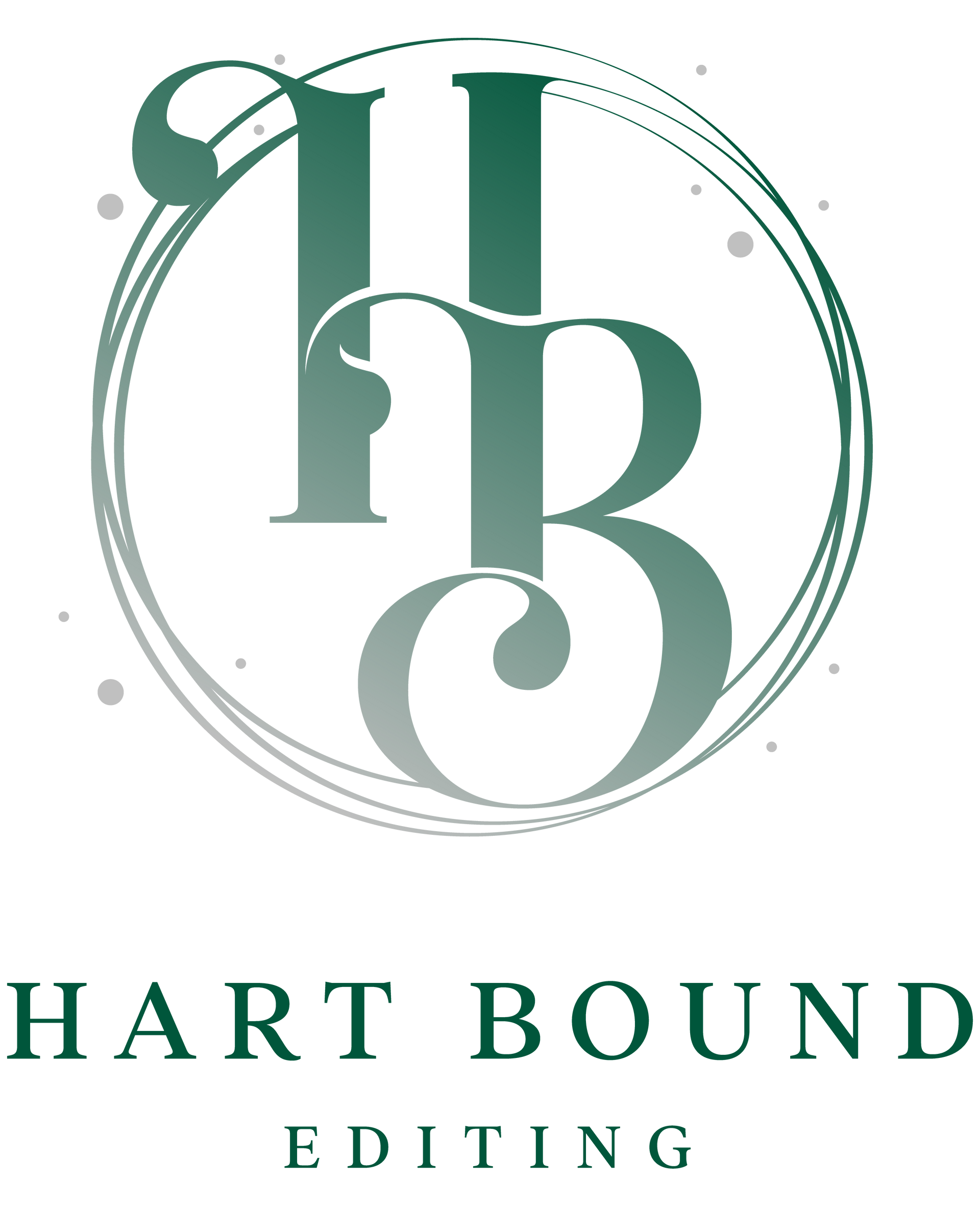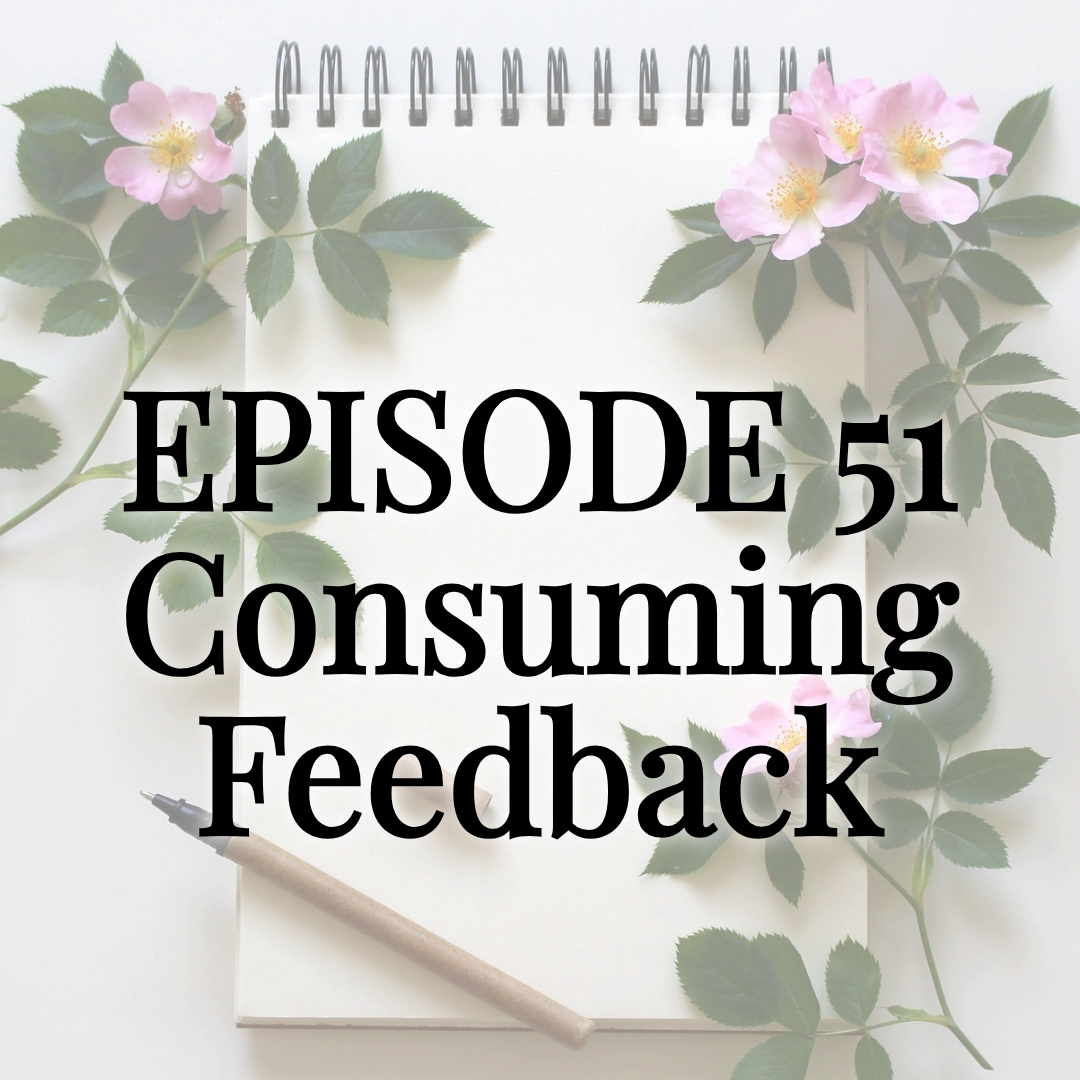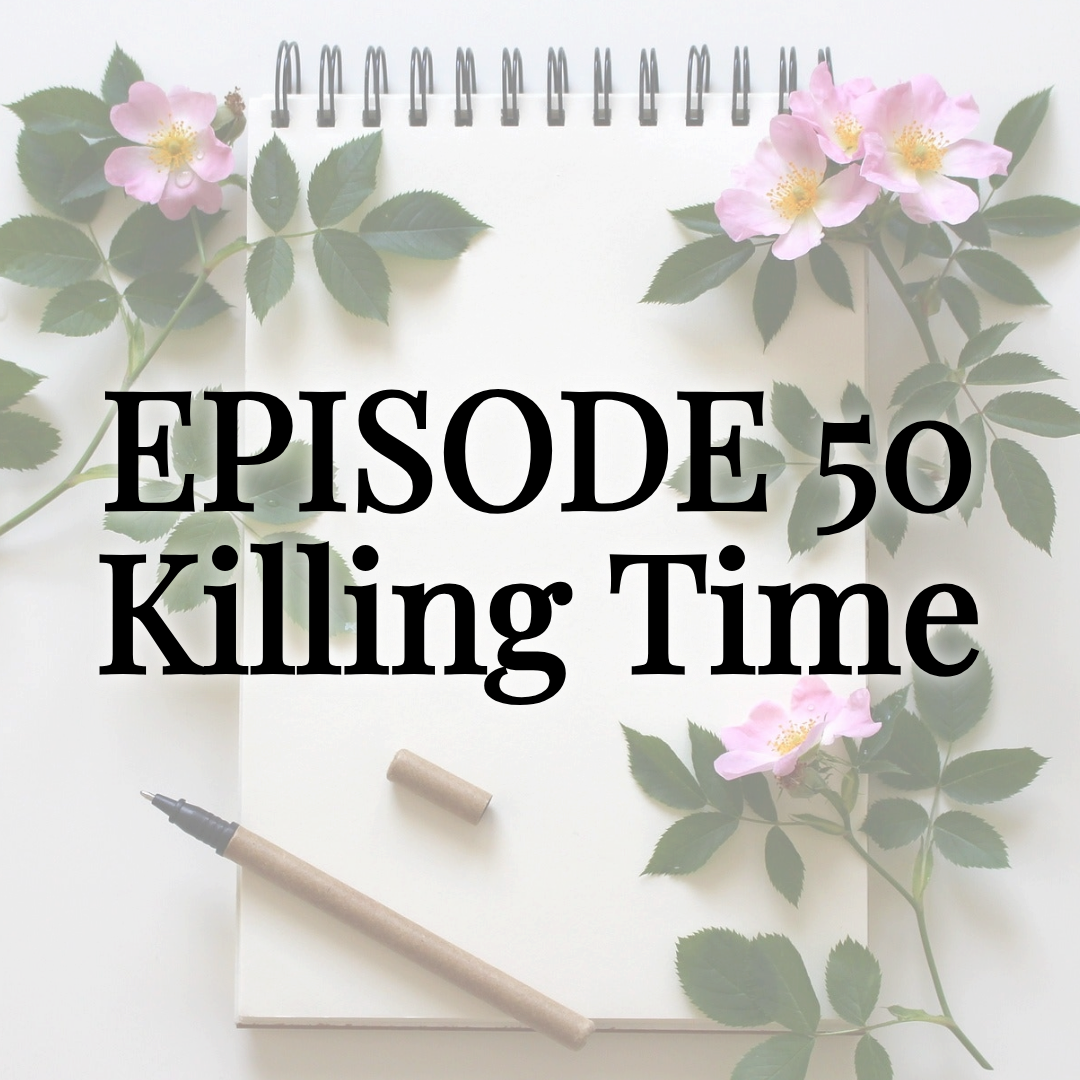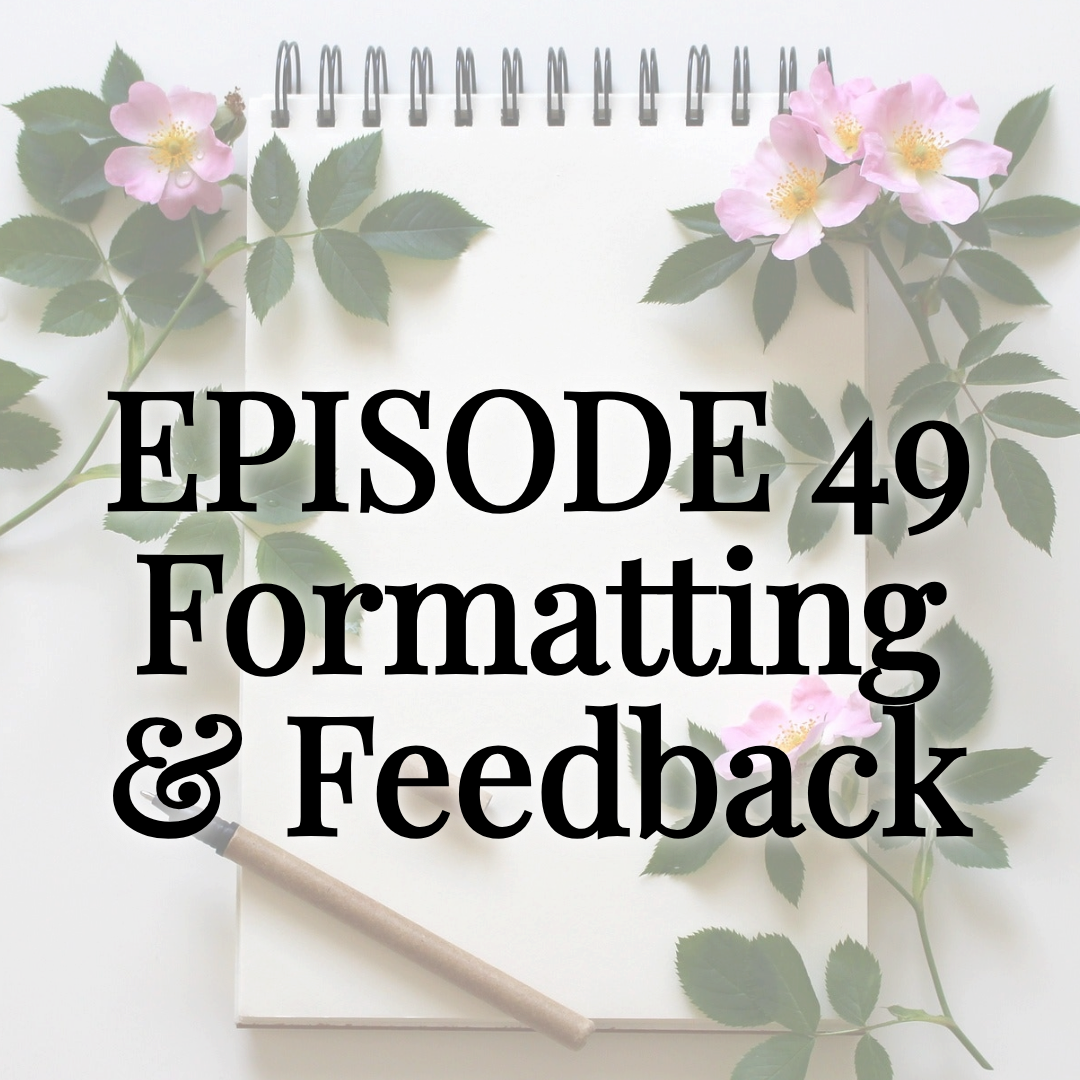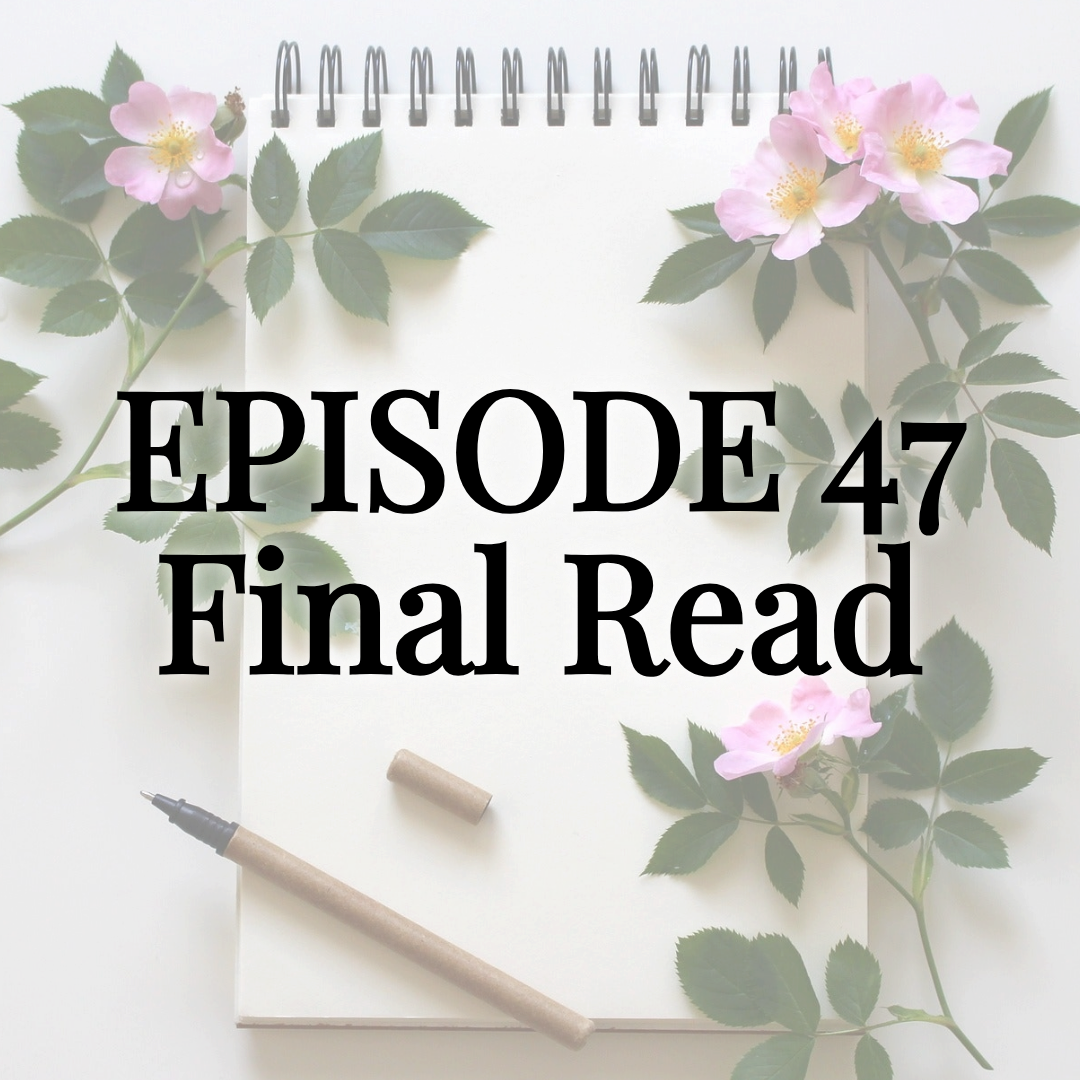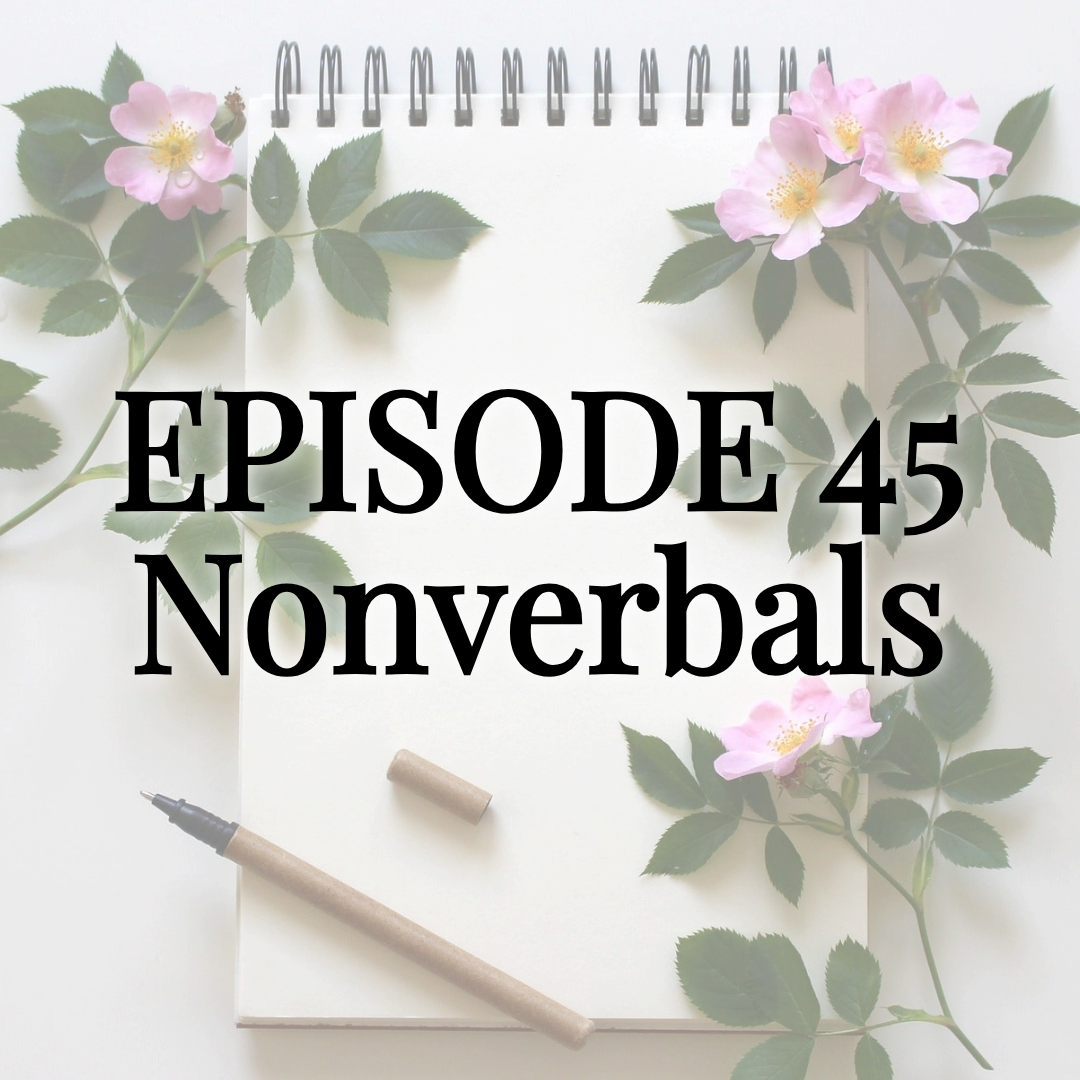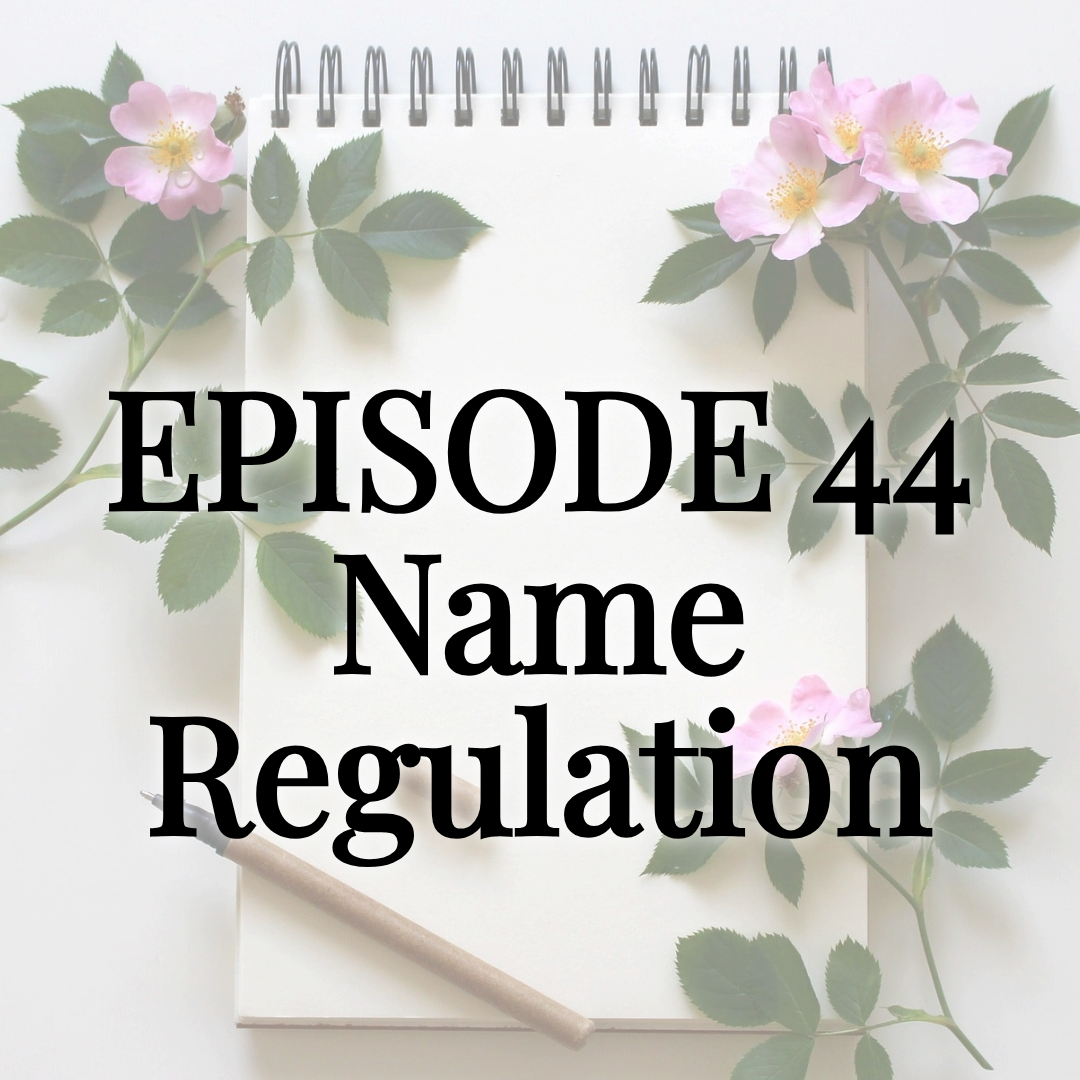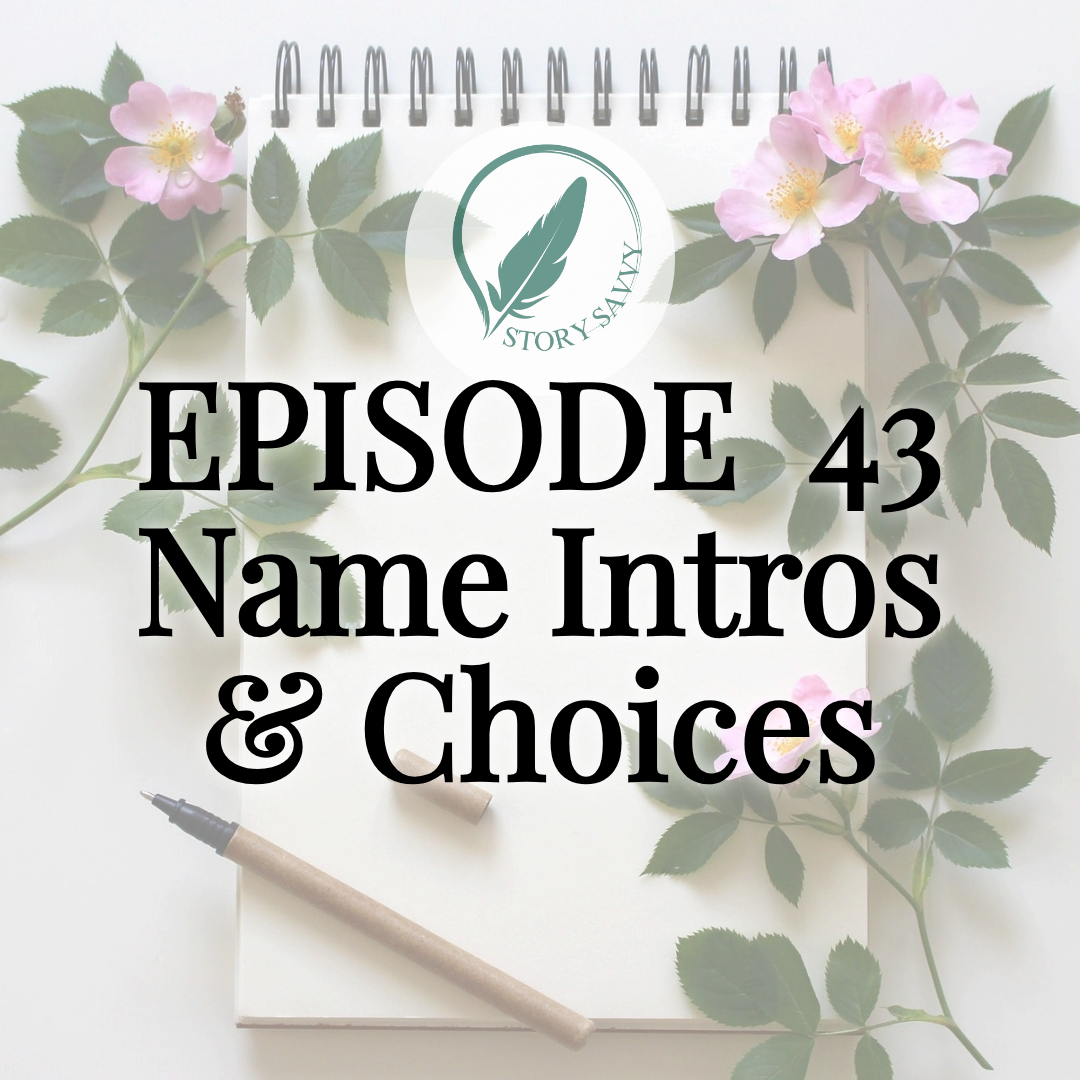Character Consistency, Depth, & Uniqueness: Story Savvy Self-Editing Episode 29
Character Consistency, Depth, & Uniqueness: After-episode thoughts, overview, and transcript...

Episode 19: Plot Holes & Character Inconsistencies may have additional helpful information for readers on this topic, as we went over avoiding character inconsistencies in relationship to plot holes there.
Correction: the episodes covering names, as mentioned in this episode, is planned for the fourth and final module of this series, not the third as I stated while recording.
I realize that my points about title and relationships, all in answer to one of Agnes's later question are nearly identical. But I hope that have options about how to look at it or think about the topic, as well as having slightly different things to say with each, is worth the mild repetition.
Happy editing!
Episode 29 Overview:
Character Consistency, Depth, & Uniqueness
"Do each of my characters act consistently within themselves and as intended? Are they three-dimensional, with flaws, quirks, dreams, etc.? Do they too strongly fall into stereotypes or tropes? Are their character voices distinct, varied, and realistic?"
Looking for DIY developmental editing for characters? In this episode, we discuss editing characters for depths, creating unique supporting characters, and making characters distinct. Whether you are working on character voice development, defining character agency in storytelling, or improving character arcs, this episode will help your good story become a great one.
In this podcast for fantasy authors, developmental editor Rebecca Hartwell offers developmental editing tips on how to make sure your characters aren’t falling flat. Joined by aspiring fantasy author Agnes Wolfe, the two discuss character consistency, how to recognize flat characters, and practical ways to give them depth, personality, and presence.
In episode 29 of the Story Savvy Self-Editing series, they dive deep into the challenges writers face when creating multi-dimensional characters. They discuss how much complexity is too much, the role of character statements in self-editing, and how to ensure character reactions and motivations make sense within the context of the story. Rebecca also shares methods for avoiding cliche characters and how to distinguish your cast even when names or stereotypes are similar.
In this episode, you’ll learn:
- What character consistency is and why it matters
- How to evaluate if a character lacks depth
- Practical tools to fix flat characters and enhance voice
- How to avoid overwriting or cliche when building distinct characters
- Tips for differentiating similar characters (beyond just names)
Recommended Resources:
- Author’s Alcove Membership: authorsalcove.com
- Fantasy Book Giveaway: AuthorsAlcove.org
See you next week for episode 30: Scene Core Events!
Episode 29 Transcript:
Character Consistency, Depth, & Uniqueness
Rebecca Hartwell: Hello and welcome to the Hart Bound Editing Podcast. This is episode 29 of the weekly Story Savvy series where we tackle the 52 biggest self-editing topics and tips to help you make your good story great as an aspiring author asks me, a developmental editor, all of the questions that you have want wanted to.
We have covered a bunch in this series so far, including the last two episodes on fantasy and romance as our only two genre specific installments of this series.
Today we are going to take a look at character consistency, depth and uniqueness in even more detail than we already have in earlier episodes. By the end of this episode, you will hopefully feel confident defining who your characters are internally, checking them for issues to fix and making sure that they aren't falling flat. Joining me to ask all of the questions is my friend and co-host Agnes Wolfe. Welcome.
Agnes Wolfe: Hi. I'm an aspiring fantasy author who is hoping to release her book later next year and also the host and founder of Author's Alcove. I'm here today to tackle the topic of making sure our characters are multi-dimensional and true to themselves.
I feel like a very good starting point would be to talk about character consistency when self-editing. How can we make sure that our characters acting in alignment with who they are and how we intended them to be throughout our story?
Rebecca: If you haven't yet, write out some character statements for the main players. For example, that could be something like, “Kate is a bit shy at first, but very talkative once she gets comfortable. She tends to just shut down in emergencies and feels guilty about it later and is anxious and guilty in general. She is open to new experiences but will rarely give things a second chance if she didn't like it the first time. And she is honest in general but tells a lot of white lies to try to keep the peace.”
These statements can be as long (within reason) or short and as vague or specific as you want, so long as everything you are including in these statements feels relevant to understanding, designing and using the character in the story.
And I will just mention again something that I have mentioned before in a previous episode, which is that fictional characters cannot be as complex as real human beings. There is a balance to be struck between a fictional character feeling flat and like you are trying to do too much with their complexity. So, use that discretion when designing or executing these characters.
As you are creating or reviewing these character statements, do a mental assessment of where you remember showing proof of that trait in the story or where you think you might be contradicting yourself.
Beyond that, you really need to do a read through for this one. And as always, I suggest having a couple of things to keep an eye on with each read through to save yourself time. So, for example, if you want to do your next read based on this episode and then the next two, so scene core events and avoiding scene stagnation, that might be a good balance of; enough to watch for that you're not wasting your time, but also not so much that you're struggling to keep track of everything you're supposed to be watching for.
When you are doing your read for character consistency, refer back to your statements about how you wanted them to be regularly. And check every mentionable moment of agency from that character against that statement. When they move the story forward, is it in a manner that aligns with their character statement? If you find something that is off in that regard, just try tweaking how you describe how they feel, how they express themselves or act, and other subtle things like that to better align with what you were going for.
Agnes: So, you know, I found it very interesting that you were saying that our characters should not be as complex as humans because you often think you want to make it as real as possible. So that was good to think about. Then I realized like, the association with like the consistency.
So, I'm just going to come out and ask, like, why does character consistency matter and why is it worth all that effort?
Rebecca: Consistency allows the reader to trust the character, the story that that character is playing out, and you as the author writing it. Without consistency, the character and writing in general can come across as unfinished, amateur, lacking in quality or craft, or simply end up confusing the reader and the, you know, the audience in general the same way a plot hole might. I go into more detail on this to some extent in episode 19, so go back to that if you, if you want to.
Agnes: So, I feel like as our characters grow, it might be easy to write a way that causes the reader to feel like our character is acting inconsistently, especially when we're trying to show that growth. How can we make sure that we are showing true character growth and not just breaking from the mold that we have written them in?
Rebecca: Again, I'm going to refer you back to episode 19. The simple answer is that you show progressive steps in that direction of growth rather than risking a leap in it in that too. Some doubling down on their old self or their old ways or backsliding in their growth when something happens or is learned that they can reach react to in that way can also help show that they are changing in realistic and understandable ways.
Something else to consider here is that you can only take a character arc so far from its starting point unless you are an expert, experienced writer. So, adjusting that starting point of their character arc up to be in closer proximity to your desired end goal is another option to explore there.
Agnes: So, I know like myself I have a Scribe and then I also have on Excel a bunch of character sheets. You know, I use my Scribe to… that one mainly says stuff like the very nitty gritty from like what personality types I've described them I use. I will actually put even like scenes in there to remind myself. But in Excel I tend to do a little bit more like the really quick looking like things. So, if I would just want to do a quick reference like “how old is this person?” That's what I usually keep in there.
So how do you personally as a writer make sure that your characters do not change from one page to the next? I shared a little bit about how I try to, but have there been methods you might not use, but that you have heard are very effective for other people?
Rebecca: Again, having those statements for who you intended them to be written out and somewhere that you can easily reference them is very, very important.
When you do your read throughs, checking if they were what you intended once written, that will naturally check for consistency from scene to scene as an outlier in one of those aspects is going to be an outlier in the other. You only need to do that process once, essentially.
I don't have any particular tips or processes here, but another thing to watch for on this is just checking that their reactions to things are always proportional to the cause or have an explanation for why they aren't.
If your character, for example, reacts to getting dumped by their boyfriend of two weeks like their spouse of 30 years just died, then that can go in three different directions as an overreaction. First, you can have them wildly overreact to everything across the board, not just this one thing, and that becomes a consistent part of their character build. The second option here would be to dial down the reaction until it fits their more standard or relatable level of reactivity. And then third, you can foreshadow and seed some tangible, understandable reasons why their reaction is so big to something seemingly so small. Such as, in this case, that this is someone who they have obsessed over for years and they finally asked them out and now they're dumping them two weeks later when this person was already shopping wedding venues, and so that elicits that big reaction. Or you could foreshadow that this reactive character has just had the week and the day from hell, and this was simply the last straw that broke them over that edge.
Does that answer your question?
Agnes: Yeah, it definitely does. One of the reasons why I'm excited for this particular episode is because I knew, like, even when I sent you my particular story, I knew one of my—my actual main character—I knew she was somewhat flat. But it was also one of those things where I wasn't ready to, like, edit it, and so I just sent it to you.
And of course I was not at all surprised when it came back that you felt that she was a little flat, a little two dimensional.
What exactly does it mean if a character lacks depth? And why is it a problem? And just going off of what you said earlier, how complex is too complex?
Rebecca: Sure. In my experience, flatness is most often a lack of emotion, a lack of tone in how they express themselves, and/or a lack of quirks or definable character traits. It can sometimes also be a lack of presence or function in the story when compared to how much you tell the reader they matter, but we're going to set that one aside for now.
Flatness is a problem because it can significantly lessen the experience of immersion or investment for the reader. We as humans are wired to pay more attention to things that are unusual, or very relatable, or unique in a way that we want to go figure out. When you essentially give them just a name, maybe a role/title and a brief visual description, and nothing else about the character to hold that reader's attention, it can be hard for the reader to stay focused on what the character is doing or saying.
On the other side of that, when you try to make a character too dynamic, multidimensional, or interesting, it can fall into a different set of problems. It can seem like you never really decided what you wanted to do with the character or who/what you wanted them to be, so you tried for all of them at once. It can seem like the character is insane or immature or unstable because their reactions and moods are all over the place in the name of complexity. Or it can come across like you, the author, don't know who they are, so, how is the reader expected to?
This is what I mean when I say that fictional characters can't be as complex as the real humans. Not speaking to you directly, Agnes, but to the listener hearing this who needs this advice: do you think that you could accurately show or tell a stranger all about you in all of your real human complexity and nuance in a way that they could truly understand, and without boring them? Do you think that you could pull that off?
For me, at least, I know that the answer is no, and I expect that it is for most people. It takes years of frequent, in-depth, meaningful interaction to know another real human being even just pretty well.
You typically have no more than 100,000 words in a novel, and you really ought to be spending at least 95% of those on things that are happening, not info dump about your character’s personality. So, picking a happy medium between not giving your character enough personality, interest, and depth, and giving them too much to reasonably handle within this medium, is always the goal.
Agnes: So how can we spot if our characters are flat? Like I know myself, I just had a gut feeling, and part of it was because I just knew that not enough was going on with her internally, but at the same time I wasn't sure how to fix it.
So, I guess that's a two-part question. How can we know that our characters are flat—because I'm sure that there's going to be a time when I'm going to have a flat character that I'm totally unaware of. And then the second part of that question is how can we avoid or fix it? And that one's probably more applicable to me as I'm working on my editing.
Rebecca: Sure. First of all, I'm going to take this opportunity to state the obvious, which is: not all characters need to be three dimensional!
Your protagonist and antagonist need to be absolutely three dimensional—or, you know, plural if you have multiple protagonists, multiple antagonists. They absolutely need some dimensionality to them.
For your secondary characters, which for today I will define as anyone who has speaking lines in more than three scenes or chapters, they should ideally have some depth to them, but it isn't nearly as crucial. And then tertiary characters, if you haven't been able to avoid including them at all, should be as flat as possible. Just to spare your reader investing in something that isn't going to have any payoff to it.
There are some exceptions to this, but generally (and dependent on genre) you don't want to waste your time or the reader's time trying to make the doorman whose only role in the story is to open doors complex and well-rounded as a character. Spend those words where they actually matter.
One easy check for flatness is to look at how similar the character that you are assessing is to other characters in the story and how close they are to a common generalized trope of their demographics. If you have a character, for example, who is a white American man in his mid-40s, and you stuck him in a room with 50 other men who match that description I just gave, how would you pick him out of a lineup?
Or, more on the internal side, if he went on a dating show where the other contestants couldn't see all of these white American men in their mid-40s, how would he set his personality apart? How would he show who he is internally that would make him different from the 50 other contestants?
Another way to check is going back to those core character statements. Is your statement for this character one sentence? That might be too little to give the character depth. And if/when you have more to give them than that in their statements, can you point to at least one place in the story where that trait is shown, where it comes up, where it is relevant?
If you can, you're probably doing okay. If you have multiple statements and they all get shown, that's what depth is. And if not, just sit with each of the traits that you can come up with for this character for a moment. Think about the story and try to find a moment where it would be very natural for you to show—again, rather than telling, ideally—that trait in a sentence or two, just sneaking that in.
Some other ways to fix a flat character include:
Number 1: make them talk exactly like someone you know in real life or a TV character that you are familiar with. Though in this one I warn you that subtlety can be important, so gauge that against your genre and the tone that you're going for.
Suggestion number 2 would be: give them a motion-related tic that is unique to them within the scope of your book. A limp, a squint, frequent itches, an abhorrence of eye contact, a little head tilt, a swagger, things like that.
Suggestion 3 would be: pick an emotion or a sub-aspect of your theme for them to personify. Make them the living embodiment of anxiety, or optimism, or organization (all within reason). Then, like I said, dial it back to where it feels realistic and subtle enough to be seamlessly included in the overall story. and apply those changes or moments to your manuscript.
Or, related to that, you can choose that character to make the opposite choices of your protagonist when it comes to that theme. And you can decide for yourself on the back end in their statement; “the reason that they're making these different choices is because of a little difference in their mindset or their emotional background, their practical background.” You don't have to tell the reader that though. Just know that that's where it's coming from and that will make it a lot easier for yourself. But then show how those right or wrong choices, that exploration of that subtopic of the theme, is working out for this character as sort of a background flavor on things.
And then lastly in these suggestions for making them more dimensional: give them more agency. This is by far the most applicable with the protagonist, but it can apply to secondary characters if you really need it to. Basically, make them initiate more of the plot actions, force more decisions onto them, have more people come to them for guidance, help, advice, things like that. Force them to be the first to react to news, unexpected events, or the actions of others. Make them bring up difficult topics or put themselves on the line in some way. Force them to act the part of the main character more, staying true to your character build statements, and it can add an amazing amount of depth. Because you're simply creating more opportunities for that depth and complexity to be relevant. And from what I can remember, this was the step that I thought could benefit your story and your protagonist the most.
Agnes: One of the things that stuck out to me that you said—this actually does not even pertain to my protagonist—but something that I thought about some of my other characters is how you stated that we should think of emotion-type description. And like, that didn't even really occur to me, like, to do that. And I know that I tend to lack on more of the visual stuff. So, for me that's like an excellent way. And also, it's a better way of describing them than just being like, “they had brown pants on,” or something like that. So, I just really loved that particular piece of advice.
So, one of the things that I think about, and I think it's especially because of the genre that I particularly write in, is: I know there are certain expectations and tropes and clichés that are very common among certain genres. And especially like with middle grade, there's definitely—like, you think of Harry Potter. There's—you can think of many different Dumbledore characters. You can think of many Hagrid-type characters.
And I noticed that I had some of those tropey-type characters in my own book. But how can we make sure that our characters are authentic to our story and not too much just like the tropes and the clichés that are in every other [example] of our particular genre?
Rebecca: Yeah, all genres have obligatory characters or roles. To use an example that you just brought up, let's talk about the mentor figure from the Hero's Journey, which applies to so many different genres and particularly the ones that I'm familiar with.
The cliché is that he's a wise old man, often with some family connection to the protagonist, but not usually an actual relative. And then some common tropes in addition to that would be that he's a wizard and he has a white beard, and he dresses in robes and he's kind of a loner until or unless the protagonist is doing something with him. I just described—
Agnes: Dumbledore.
Rebecca: Dumbledore. Thank you. I was blanking on the name. Dumbledore. And Gandalf. And Obi-Wan Kenobi. And who knows how many others.
The thing is, none of those cliché elements or trope aspects have anything to do with the character's ability to be a mentor to the protagonist, so none of those aspects are obligatory. The obligatory aspect is that the protagonist has someone to talk to who knows more than they do and is willing to help, and teach, and guide as needed for that specific story.
There is no reason that the Hero's Journey mentor archetype can't be a non-binary ogre who got kicked out of his tribe for being too fashion obsessed and now lives with several thousand brownies as their protector. That mentor could be a journal written by the protagonist's dead mother decades ago, which they now flip through and read relevant passages from as a form of self-advice, self-therapy, from these passages that their mother wrote and gave them which can't really connect until the protagonist is in that moment of need where, “Oh, that makes sense now, I can interpret it this way,” kind of thing.
Essentially, how you make sure that you aren't too cliché with certain character choices—if you don't want to be (and again, I'm not that anti-cliché!)—is that you brainstorm small changes to that role, relationship, identity, demographics, attitudes, desires, how they came by their expertise, and things like that until you feel satisfied.
This is why I keep encouraging folks to interpret obligatory aspects of their genre or general story craft as loosely as they can, or as loosely as they want to. Yes, there needs to be a villain/mentor/rival/murderer to get caught/whatever, in specific genres. But the requirement is the essential role that they play in the plot. Not the size, shape, color, gender, etc., of the character serving that role.
Agnes: One of the things that I remember I did in my very first edits—and I still have to like refine and work on this, so it's not like perfect or anything—is I wanted to try to make that each—well, not each of my characters, but like specific characters—I wanted to make sure they had very unique character personality traits, tones… just very unique, so that they would stand out.
What are some things that we should consider as we are creating these unique voices for our characters?
Rebecca: I do remember that. First, and this isn't specific to your book, but in general: use contractions, people, please. I'm not sure I can personally explain why, but all of your characters sounding kind of the same when they're speaking naturally with contractions is a lot less noticeable than a bunch of characters all sounding like formal British butlers. It's a thing, especially in fantasy.
Second, add a line to their character statement about how they talk, and tweak things to fit that as you are doing your next read-through to check things. That might be about their educational background, or about where they're from, or if their priority is sounding cool or avoiding ever being misunderstood, which is what I personally am.
Third piece of advice for this difference in how characters sound would be: make sure that each character has a slightly different motivation in play and stick to that when they are speaking or writing. For example, one character might be trying to get everyone to get along. One might always be angling to get the most out of a situation as selfishly as they can, every day, every single time they have a conversation. And then a third might be permanently confused about everything, but they are trying to sound like they aren't.
And all of these different aspects are going to affect what the character chooses to say, how they word their thoughts, all of these different aspects. Their tone, their willingness to admit that they're wrong, their willingness to ask questions, all of these different things. And all of those different aspects are going to help keep each of them distinct.
Agnes: So, one of the things I remember when I was doing some beta reading for someone is: I had so much trouble telling the difference between two characters. And it was because the spelling of their names were very, very different. But when I said them in my head, they sounded very similar, and I would get them confused even though they were very different characters. Very different everything. But for some reason, because the names were so close in sound, I struggle to tell them apart.
So, aside from names, are there other things that we should be concerned of when writing characters to make sure they will not be confused with one another?
Rebecca: Yeah, we are going to do two whole episodes on names and other issues like that in the third module of this series [correction, those episodes will be in the 4th and final module of this series], which we are almost there for. Some other things to consider are roles, titles, descriptions, and relationships to each other.
With roles, you need to remember that readers are going to remember who characters are based on the role that they play even more than the name. So, if you have more than one character a reader might think of as ‘the king’ or ‘the best friend’ or ‘the coworker’ then it might be worth adjusting those roles so that each is a little bit more unique to the story.
Pretty much the same note for titles. If there are multiple lords or sirs or moms in the story, might want to adjust those to each be a little bit unique to themselves.
For descriptions, it's mostly about making your characters visually distinct or being unique in what you describe about each character.
For example, even if you have a, you know, a female main character who is meeting the three brother love interests who you describe as all looking remarkably similar, you still need to choose something unique for each, which you will use as a descriptor more often than what they have in common.
And this might be: one of them is the one who is always scowling. Another one is the tallest of the three. And the other is the one who has tattoos peeking out of the collar of his shirt. They all can be dark-haired, same haircut. They can all be relatively tall. They can all have the same facial structure and eye color. But you need to choose to more often mention what they have different than what they have in common.
Related to that, if you have two female characters with red hair, I personally suggest that you avoid using the phrase “the red-haired woman did XYZ” without also adding a descriptor that is unique to the one that you're talking about.
And then lastly, relationships can cause confusion. I already mentioned coworkers and moms, but it's not just limited to relationships to the protagonist which they are aware of within the story. This applies to any situation where the reader might have to think, “Wait, which one are they talking about?” if they come back to the book after setting it aside for however long. Which bully is being referred to? Or which teacher, which rival, which antagonist, which boss, which friend, anything like that. Just differentiate them however you can. And try to mention what makes them unique more often than you mention the shared relationship to the main character. So instead of saying, “Well, this boss did this and this boss did that,” instead say, “Well, my manager did this, and the CEO did that.” That's going to help differentiate a lot.
Agnes: That makes a lot of sense. I do have one last question, and I'm surprised that I haven't asked this already because I usually like to ask this earlier on, but what is the most common mistake you see writers making when they're trying to make a character distinct.
Rebecca: Probably making them comically extreme in whatever trait is used to give them depth or make them unique. This is far and away the biggest issue that I've seen trying to give characters depth. If you're writing comedy of any genre, by all means lean into it. That can be a great way to add comedy to every single page. However, I too often see this happening in more serious books or more serious genres where it just does not land.
This is why I mentioned subtlety several times in this episode. If you want to make your character, for example, generally more nervous, do so in a way where it's more background shading on who they arem and how they existm and how they choose to take actions and ask questions, or in their posture, subtle things, rather than making them constantly shaking or telling people how anxious they are all the time or biting their fingernails down to the quick.
Anything that you can picture a Looney Tunes character doing is probably overdoing it. Keep it grounded, keep it relevant, and like I mentioned earlier, only add depth to characters whose involvement in the story warrants that depth.
Agnes: Thank you so much. I really appreciated this because as you were talking, the wheels were like spinning in my head, and I am like, “okay, I want to get into my book because I have a few changes I want to make.” So that means that you did an excellent job. Thank you very much.
Rebecca: You are entirely welcome. And yeah, next week we will finally get to what I personally think is the most important episode of this entire series: Scene Core Events! And that will start off the third layer of this series, where we're getting into just scene-specific topics.
For now, I really want to thank everyone for following along with this series. We would really appreciate it if you could help us out by liking and subscribing to the Hart Bound Editing Podcast and the Author's Alcove Podcast, where you can find lots more content for fantasy authors and readers beyond this joint series.
Agnes: I can't wait to chat with you then. Thank you. See you then.
Rebecca: Thank you so much for listening to the Hart Bound Editing Podcast. I look forward to bringing you more content to help you make your good story great so it can change lives and change your world. Follow along to hear more or visit my website, linked in the description, to learn how I can help you and your story to flourish.
See you next time!
